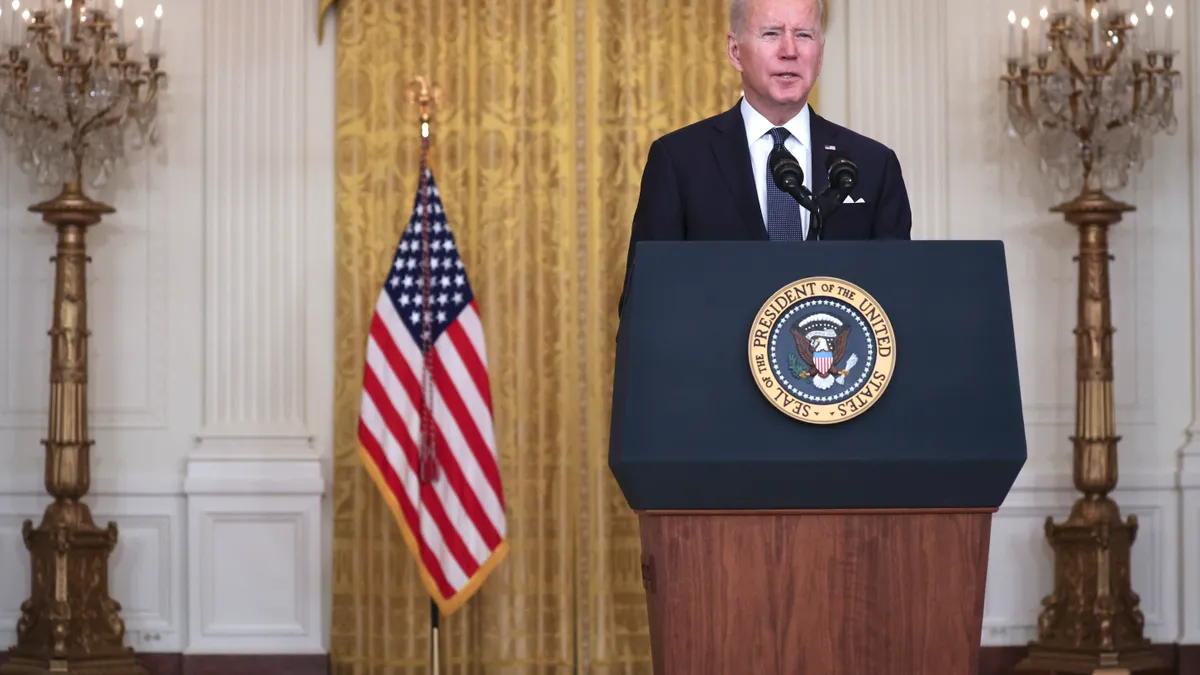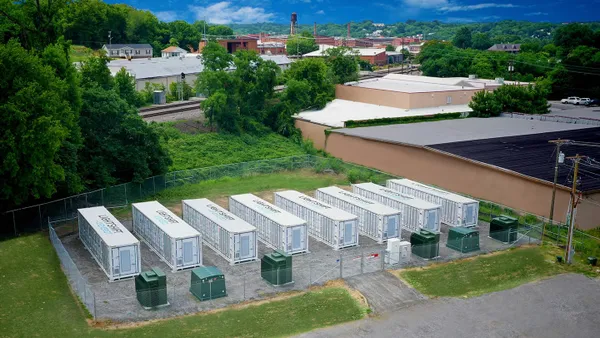Dive Brief:
- Republicans on Tuesday took advantage of a House subcommittee hearing on electric vehicle (EV) manufacturing and supply chains as an opportunity to criticize President Joe Biden's broader clean energy policy, as a new federal ban on Russian oil and natural gas imports comes in response to the war in Ukraine.
- The White House is "hopelessly naive" to view transportation electrification as a way to secure the United States' energy system, particularly because growing EV adoption means relying on China for more batteries and critical minerals, said Rep. Bill Johnson, R-Ohio. "It is absurd that we are talking about electric vehicles today," he said.
- Democrats at the hearing called for developing more domestic clean energy technologies and bolstering U.S. manufacturing in response to higher oil prices and global destabilization.
Dive Insight:
News of President Biden's ban on Russian oil and gas imports was just coming out as the House Subcommittee on Energy began discussing EVs on Tuesday.
"That's a good first step," said Rep. Fred Upton, R-Mich., before calling for upgrades to fossil fuel energy infrastructure like pipelines, storage tanks and export terminals, "so we can move products more efficiently and stabilize global markets."
Upton said he and Rep. Cathy McMorris Rodgers, R-Wash., on Thursday sent letters to the Federal Energy Regulatory Commission and to Department of Energy (DOE) Secretary Jennifer Granholm, urging them to "immediately approve delayed permits" for liquefied natural gas export facilities and natural gas pipelines.
Biden will have to do more than just ban imports; he must also adopt policies to increase domestic production, Rodgers said at the hearing. "Any import ban on Russian oil that fails to flip the switch on American energy is incomplete," she said.
Granholm, speaking Tuesday at Lawrence Berkeley National Laboratory's national energy storage summit, made comments about the importance of shoring up battery and EV manufacturing and supply chains as a way to accelerate the clean energy transition and ensure energy independence for the United States.
Clean energy "offers us a better way forward, and the only way to get closer to true energy independence [and] national security is by building out the technology at home with a reliable supply chain," Granholm said. "Nobody has ever held a country hostage over access to the sun or access to the wind."
About 3% of U.S. crude oil imports come from Russia, according to the American Fuel & Petrochemical Manufacturers trade organization. And the U.S. is a net exporter of natural gas, according to the U.S. Energy Information Administration.
Upton, however, noted that oil imports from Russia reached an 11-year high last year totaling nearly $20 billion. And he appeared to lay some blame on Biden for the invasion of Ukraine by Russia President Vladimir Putin.
Putin felt "emboldened to attack because Russia has a stranglehold on Europe's pipelines and energy supplies and he saw a real weakness in President Biden's anti-fossil fuel agenda," Upton said.
Democrats pushed back on Republican criticisms of Biden's clean energy goals, and the committee heard testimony about the EV industry's efforts to bolster charging infrastructure ahead of wider adoption of plug-in vehicles. The bipartisan infrastructure bill passed in 2021 included $7.5 billion for development of EV charging infrastructure as part of a push to develop a 500,000 station national network.
"If we want to reduce Putin's power, as well as the power of all the oil companies ... then we need to double down on alternatives, not on the same old failed policies of the past," said Rep. Frank Pallone Jr., D-N.J. "We have a historic opportunity to charge forward on EVs. This investment comes at a time when Americans are facing sticker shock at gas pump."
To help disperse that $7.5 billion to states, and then into the EV market, DOE and the U.S. Department of Transportation formed a joint office to support the development of the national charging network. States must develop plans and submit them to the joint office by Aug. 1 in order to be eligible for an initial $615 million through a new National Electric Vehicle Infrastructure Formula Program.
The new joint office is "demonstrating a serious commitment to working with the states and private sector as partners" Cassandra Powers, senior managing director of the National Association of State Energy
Officials, told the subcommittee.
There has been "tremendous" work done by states to build out EV infrastructure, Powers said. But she also highlighted challenges, particularly in rural areas.
"There are often long stretches of highway without any electric service," Powers said. "States are looking at creative ideas, grid edge activities, pairing distributed generation and solar. They are really working hand in hand with their utilities ... to figure out what is it that they need, to make sure that the electric system can adequately service drivers."
Kavya Balaraman contributed to this reporting.















